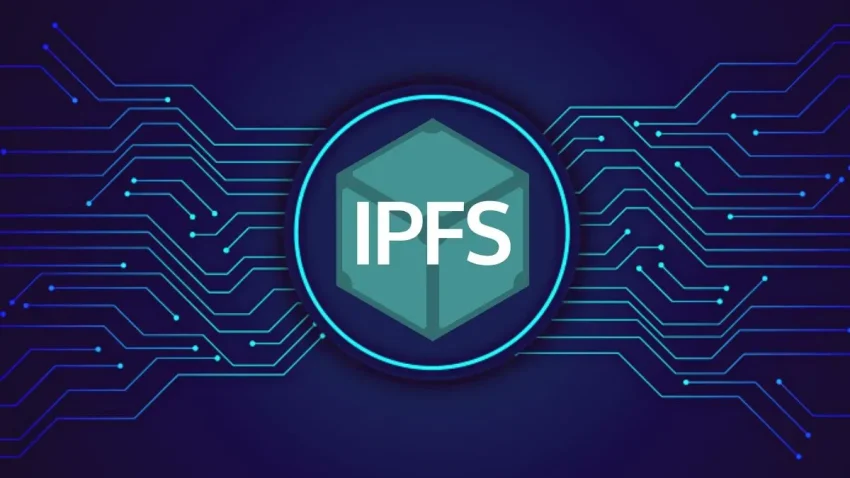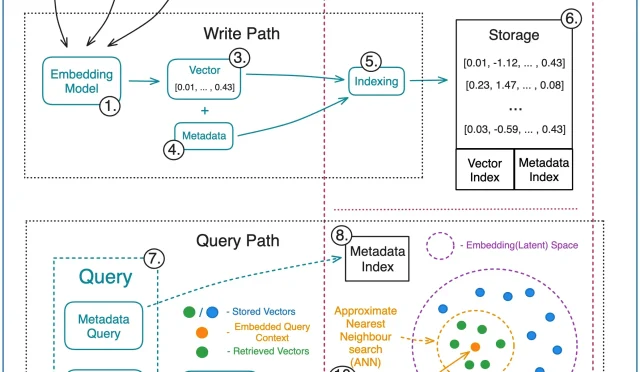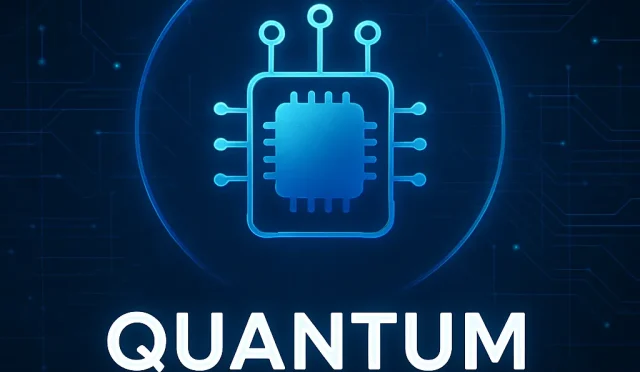IPFS: Building Blocks for a Better Web Experience
IPFS, or InterPlanetary File System, is at the forefront of creating a decentralized web that reshapes how we store and share digital content. Leveraging innovative content addressing techniques, IPFS allows users to retrieve data based on its unique fingerprint rather than its physical location, greatly enhancing data integrity and accessibility. This peer-to-peer storage network not only supports resilient digital infrastructures but also plays a pivotal role in NFT storage and various other applications. By facilitating open protocols for online data distribution, IPFS promotes transparency, collaboration, and censorship resistance, crucial for the future of digital interactions. Dive into the world of IPFS to discover how it’s revolutionizing connectivity and data management across industries.
The InterPlanetary File System exemplifies the next generation of online data management, leveraging decentralized technology to redefine accessibility and storage. As a distributed protocol, it enhances peer-to-peer content delivery and enforces data integrity through innovative addressing methods. This breakthrough technology serves a multitude of use cases, from securely archiving information to supporting decentralized applications in the realm of non-fungible tokens (NFTs). By removing reliance on traditional data silos, it unlocks the potential for a truly collaborative and censorship-resistant environment. Engaging with IPFS means embracing the future of the web, where open protocols and community-driven development lead the way.
Understanding IPFS and Its Role in the Decentralized Web
The InterPlanetary File System (IPFS) serves as a pivotal technology in the evolution of the decentralized web. Unlike traditional web protocols that rely on a location-based addressing scheme, IPFS utilizes content addressing to retrieve files based on their unique cryptographic hashes. This crucial innovation allows for a more resilient and efficient system where data integrity is maintained and network reliance on central servers is significantly reduced. By leveraging peer-to-peer storage, users can share and access data without the risk of censorship or downtime, making it an ideal foundation for the decentralized internet.
Moreover, IPFS empowers developers to create decentralized applications with substantial flexibility. The open protocols that IPFS employs foster collaboration across platforms, allowing users to build applications that can operate independently of centralized control. This capability extends to various sectors, from NFTs and digital art storage to scientific collaboration and archiving, thus reinforcing the potential of a truly decentralized and open web.
Exploring the Versatility of IPFS
IPFS’s versatility extends beyond mere file storage; it transforms the way we interact with data across diverse industries. The network’s innovative approach to content addressing allows applications like Anytype to develop offline-native productivity tools that empower users to create personal knowledge webs. These tools can be shared collaboratively, highlighting IPFS’s role in fostering communal knowledge creation. Such decentralization enhances user autonomy and encourages an ecosystem where information is readily accessible and resistant to censorship.
In the realm of digital art, IPFS proves indispensable for artists looking to ensure their work has a permanent home. Artists like Nancy Baker Cahill use platforms such as NFT.storage to securely store full-resolution art assets on IPFS, guaranteeing resilience against data loss. This combination of security and accessibility signifies a major shift in how artists manage their portfolios, allowing them to focus on creativity rather than the risk of content disappearance.
Censorship Resistance and Data Security with IPFS
One of the most compelling advantages of IPFS is its inherent censorship resistance. By utilizing distributed storage across a vast network of nodes, the IPFS ecosystem can withstand attempts to block access to information. A notable example occurred when the Turkish government blocked Wikipedia; an archived version of the site was made available on IPFS, allowing access to millions searching for information. This incident not only underscores IPFS’s power in preserving free speech but also illustrates its role in ensuring critical information remains accessible in oppressive environments.
In addition to censorship resistance, IPFS ensures data integrity and security through advanced cryptographic methods. Each file stored on IPFS is associated with a unique hash, guaranteeing that users receive the exact version of a piece of data they are looking for. This level of verification instills trust in users, making IPFS a reliable choice for applications requiring stringent data management, such as scientific research and governance in Web3. The combination of open protocols and cryptographic security makes IPFS an ideal backbone for applications demanding both transparency and reliability.
The Role of IPFS in NFT Storage
IPFS plays a crucial role in the burgeoning market of Non-Fungible Tokens (NFTs) by providing a decentralized method for storing and retrieving digital assets. Unlike traditional storage solutions that can be vulnerable to data loss, NFTs stored on IPFS benefit from the resilience of a distributed network. Digital artists and collectors can rely on IPFS to ensure that their NFT assets remain accessible and unchanged over time, eliminating the concerns associated with data permanence on centralized servers.
Using IPFS for NFT storage also aligns with broader decentralized web principles. By decentralizing the storage of assets, NFT creators can maintain ownership and control over their works, further solidifying the value of non-fungible tokens. As the NFT market continues to grow, investing in infrastructure like IPFS ensures that digital assets are not only secure but also uphold the ethos of decentralization that is fundamental to the future of digital art and collectibles.
Building Peer-to-Peer Applications on IPFS
The IPFS network facilitates the development of peer-to-peer applications that prioritize user control and data integrity. Developers can leverage various programming languages, including Go, Rust, and JavaScript, to build applications that seamlessly integrate with IPFS’s architecture. This flexibility allows for the creation of diverse applications ranging from decentralized social networks to content-sharing platforms, empowering developers to innovate without the constraints typically imposed by traditional web hosting.
Moreover, the ability to deploy static applications to IPFS enhances development efficiency and cost-effectiveness. Developers can create applications that not only operate smoothly but also benefit from the robust data security afforded by IPFS. By engaging with this technology, developers contribute to a dynamic ecosystem that emphasizes decentralization, reliability, and community-driven collaboration.
IPFS as a Tool for Scientific Collaboration
In the scientific community, IPFS is emerging as a powerful tool for collaboration and data sharing. By enabling researchers to share vast datasets securely and transparently, IPFS accelerates the pace of discovery across disciplines. For example, WeatherXM employs IPFS to share real-time data collected from smart weather vanes, fostering global collaboration in meteorological studies. Such initiatives showcase how open protocols can enhance scientific endeavors, encouraging researchers to work together without the barriers typically associated with centralized data repositories.
Furthermore, the secure data integrity offered by IPFS is paramount in research where data accuracy is critical. Researchers can trust that the information shared via IPFS is verifiable and has not been tampered with, facilitating transparency in scholarly communication. This not only enhances data sharing but also encourages more ethical collaboration in research projects, making IPFS an invaluable resource in modern scientific inquiry.
Community Engagement and the Future of IPFS
Engagement within the IPFS community is vital for the ongoing development of a decentralized web. As more developers, artists, researchers, and enthusiasts join the network, the collective knowledge and resources grow exponentially. Community members contribute their unique perspectives and expertise to enhance IPFS, which ultimately strengthens the network’s resilience and adaptability to future challenges. This spirit of collaboration is the foundation for building a better web accessible to everyone.
Looking forward, the continued evolution of IPFS will hinge on the active participation of its community. By contributing to open-source projects, sharing practical implementations, and advocating for decentralized technologies, community members play a pivotal role in advancing the utility of IPFS. This shared vision not only pushes the boundaries of technological innovation but also inspires a cultural transformation toward greater digital autonomy and interconnectedness.
IPFS in Space: Advancing Interplanetary Communication
The ambitious initiative of launching an IPFS node into orbit exemplifies the cutting-edge application of decentralized technologies in space exploration. By establishing an interplanetary communication node powered by IPFS, organizations like Lockheed Martin are pushing the boundaries of how data is shared and accessed beyond Earth. This innovation not only showcases the robustness of a decentralized web but also sets the stage for future missions where communication must remain reliable even in the vastness of space.
This venture represents a significant milestone in demonstrating the adaptability of IPFS for onboard communication systems, which will be essential as humanity explores other planets. The ability to maintain continuous data flow without reliance on central infrastructure can enhance mission operations, fostering innovation in how we think about data sharing in environments previously deemed inhospitable. Such advancements could pave the way for a more interconnected future, not just on Earth but across the cosmos.
The Impact of IPFS on Data Storage Solutions
IPFS is revolutionizing data storage solutions by providing a decentralized alternative that addresses many limitations of traditional cloud storage. By distributing data across multiple nodes, IPFS ensures higher availability and durability, which minimizes the risk of data loss due to server outages or centralized failures. This shift towards decentralized content addressing empowers users to reclaim control over their data, fostering a more equitable digital landscape.
Furthermore, organizations are increasingly turning to IPFS for managing vast amounts of data while keeping costs manageable. With storage fees becoming a significant overhead in traditional systems, IPFS offers a cost-effective solution, leveraging the power of community-driven networks. This innovative approach not only enhances operational efficiency but also aligns with the goals of sustainability and open access, propelling a transformative change in data storage practices.
Frequently Asked Questions
What is IPFS and how does it support decentralized web technologies?
IPFS, or InterPlanetary File System, is a peer-to-peer storage network designed to create a decentralized web environment. It utilizes content addressing, which means data is accessed based on its unique content hash rather than its location. This innovative approach enhances data availability and integrity, making it a foundational technology for decentralized applications.
How does IPFS ensure data integrity and security?
IPFS guarantees data integrity through the use of cryptographic hash functions. Each piece of data stored in the IPFS network is assigned a unique content identifier (CID) based on its content. This ensures that when you retrieve data, you are getting exactly what you requested, protecting against data manipulation and loss.
What are the benefits of using IPFS for NFT storage?
IPFS is an excellent solution for NFT storage due to its decentralized nature and content addressing capabilities. By storing digital artwork and assets on IPFS, artists ensure that their NFTs are securely preserved and accessible without relying on any single point of failure, enhancing the longevity and availability of their work.
Can IPFS be used for building peer-to-peer applications?
Absolutely! IPFS is designed to facilitate the development of peer-to-peer applications. Its open protocols allow developers to create robust applications that leverage decentralized storage, making it easier to build applications that are resilient, verifiable, and less dependent on centralized servers.
How does IPFS improve the availability of scientific research data?
IPFS enhances the availability of scientific research by enabling researchers to publish their work in a decentralized manner. By using IPFS for data storage, researchers can ensure their findings are permanently accessible, fostering greater collaboration and transparency across the scientific community.
What role does IPFS play in making content libraries censorship-resistant?
IPFS plays a crucial role in ensuring content libraries remain censorship-resistant. By distributing data across a decentralized network, IPFS allows information to bypass traditional barriers imposed by governments or organizations attempting to restrict access, enabling free sharing of knowledge and resources.
In what ways can developers utilize IPFS for large-scale data storage?
Developers can leverage IPFS for large-scale data storage by using content addressing to uniquely identify and efficiently manage their data. IPFS’s distributed nature allows for scalable storage solutions, making it ideal for applications that require hosting large volumes of data without the limitations of traditional servers.
Why is content addressing fundamental to the functionality of IPFS?
Content addressing is fundamental to IPFS because it revolutionizes how data is located and retrieved. Instead of relying on URLs and server locations, IPFS retrieves content by a hash of the data itself, ensuring that users always access the most current version of a file while enhancing security and reducing the risks of broken links.
How does IPFS enable interplanetary communication?
IPFS is designed with the vision of interplanetary communication in mind, handling the unique challenges of data transmission across vast distances in space. Its robust architecture allows data to be shared and maintained across multiple nodes, making it suitable for applications beyond Earth, such as deep space missions.
How is the IPFS community contributing to the future of the decentralized web?
The IPFS community plays a vital role in shaping the decentralized web by continuously developing tools, applications, and protocols. Through collaboration among developers, artists, and researchers, the community strives to innovate and support the widespread adoption of decentralized technologies, ensuring a resilient and open future for the internet.
| Key Point | Description | |
|---|---|---|
| Building Blocks For a Better Web | Open protocols to store, verify, and share data across distributed networks. | |
| A Universe of Uses | IPFS’s versatility shines across different industries, serving as a multi-purpose tool for the decentralized age. | |
| Offline-native tools | Anytype utilizes content addressing on IPFS for personal knowledge webs. | |
| Censorship resistance | IPFS provided access to Wikipedia in Turkey when it was blocked. | |
| Game optimization | 3S Studios reduced game size with an IPFS plugin for Unity. | |
| Permanent digital art storage | Nancy Baker Cahill stores her artwork securely on IPFS. | |
| Global scientific collaboration | WeatherXM uses IPFS to share weather data worldwide. | |
| Web3 data transparency | Snapshot leverages IPFS for recording web3 project proposals and votes. | |
| Community and contributions | IPFS boasts over 2000 active contributors and robust support across various sectors. | |
Summary
IPFS is revolutionizing the web by providing a decentralized framework for storing and sharing data. With its versatile applications across various industries—from enhancing gaming experiences to securing digital art and enabling scientific collaborations—IPFS stands as a foundational technology for the future of the internet. It addresses critical issues such as censorship, data integrity, and storage resilience, making it an essential tool in today’s digital landscape.
#IPFS #DecentralizedWeb #Web3Technology #BetterInternet #TechInnovation








